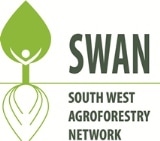Don't forget to like the SWAN Facebook page for regular updates on forestry and timber topics. We include a selection of the more popular stories in each newsletter.
| "The Brisbane Showgrounds is set to house the world’s largest and tallest engineered timber building (almost 45 metres) at 25 King Street. "The fascinating thing about building with timber is that its strength is akin to concrete and steel, it can be produced economically in a factory environment and most importantly boasts a plethora of sustainability benefits.” Read more... "More than 6.66 million hectares of new forest will be planted in 2018, with the People’s Liberation Army reassigning tens of thousands of infantry, with additional help from the police force. Many of the troops will work in the heavily industrial province of Hebei, which circles Beijing. Authorities in Hebei have pledged to raise total forest coverage to 35 percent by the end of 2020." More.. "Liangbing Hu, a materials scientist at the University of Maryland, College Park and his colleagues say they have come up with a better way to "densify" wood. Their simple, two-step process starts with boiling wood in a solution of sodium hydroxide (NaOH) and sodium sulfite (Na2SO3), a chemical treatment similar to the first step in creating the wood pulp used to make paper. This partially removes lignin and hemicellulose but it largely leaves the wood’s cellulose intact." Read more. Swedish multinational IKEA has announced it is buying 25,000 acres of forest in the US state of Alabama. IKEA is partnering with timber specialists the Campbell Group to ensure the forest is managed to the highest standards in sustainability. Campbell Global already manages 2.6 million acres of land in the US and Australia. Read more... "... forests are choked with vegetation and full of spindly, stressed trees competing for scarce water, sunlight and growing space. A forest economy built only on boards will inherently degrade the forest. We desperately need to value the culls so our woodlots can regrow superior genetics and reverse the multi-century slide to weaker species.... We must figure out a way to take the diseased, infirm, crooked and weak. These imperfect specimens occupy valuable space that could be devoted to growing genetically superior individuals. " Read more... |
